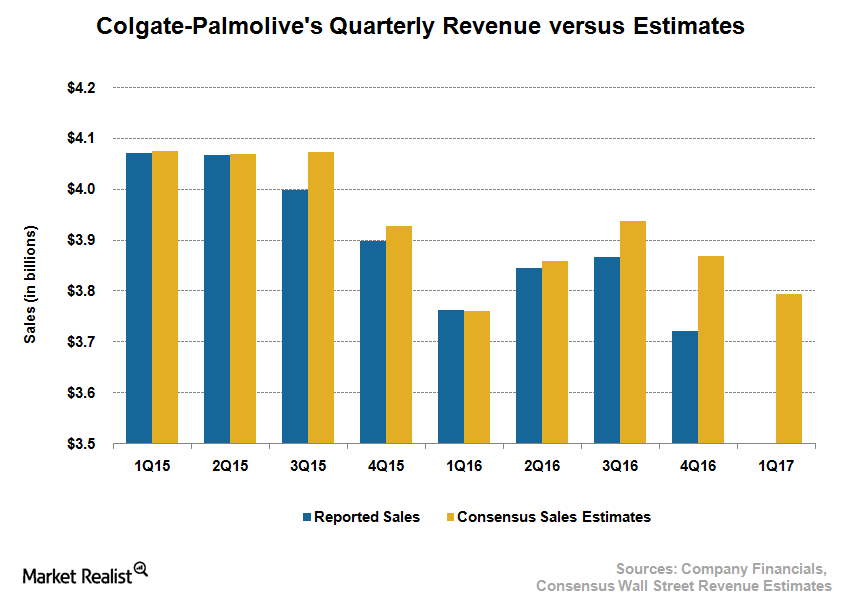Europe Rejects Trump Administration's AI Regulatory Push

Table of Contents
Differing Approaches to AI Governance
The fundamental disagreement between the US and Europe on AI regulation stems from contrasting approaches to governance.
The US Approach: Innovation over Regulation
The US approach to AI regulation, particularly under the Trump administration, prioritized fostering innovation through minimal intervention. This strategy emphasized:
- Emphasis on promoting competitiveness: The belief was that excessive regulation would stifle technological advancement and hinder US competitiveness in the global AI race.
- Concerns about stifling technological advancement: The focus was on allowing the market to self-regulate, believing that rapid technological development should not be constrained by heavy-handed government oversight.
- Reliance on voluntary guidelines: Instead of mandatory regulations, the US leaned towards encouraging industry self-regulation through voluntary guidelines and best practices.
The European Approach: Ethics and Data Protection First
Europe, in contrast, adopted a more cautious and proactive approach to AI regulation, placing a strong emphasis on ethical considerations, data privacy, and consumer protection. This involved:
- Stringent data protection laws (GDPR): The General Data Protection Regulation (GDPR) laid the groundwork for a robust regulatory framework, establishing high standards for data privacy and individual rights.
- Focus on algorithmic transparency and accountability: Europe emphasized the need for transparency in AI algorithms and mechanisms for holding developers accountable for the outcomes of their AI systems.
- Proactive risk assessment and mitigation strategies: The proposed AI Act reflects a proactive approach to identifying and mitigating potential risks associated with AI deployment across various sectors.
Key Concerns Driving European Opposition
Europe's rejection of the Trump administration's light-touch approach stemmed from several key concerns:
Data Privacy Concerns
The divergence in data privacy philosophies is a major point of contention. The EU's GDPR establishes far stricter standards than those in the US, leading to significant concerns:
- GDPR's impact: The GDPR's broad scope and stringent requirements significantly impact how data is collected, processed, and used, creating a major obstacle for US companies operating in Europe.
- Concerns over data breaches and misuse: Europe prioritized preventing data breaches and misuse, leading to greater scrutiny of AI systems that process personal data.
- Transatlantic data flows and the Privacy Shield's demise: The invalidation of the Privacy Shield further highlighted the difficulties in ensuring adequate data protection when transferring data between the US and Europe.
Ethical Considerations
Europe places a much stronger emphasis on the ethical implications of AI development than the US. This includes concerns about:
- Bias in algorithms: The potential for bias in AI algorithms leading to discriminatory outcomes is a significant ethical concern for European regulators.
- Potential for discrimination: Algorithms trained on biased data can perpetuate and amplify existing societal biases, leading to unfair or discriminatory outcomes.
- Lack of transparency and explainability: The “black box” nature of some AI systems, making it difficult to understand how they arrive at their decisions, raises concerns about accountability and fairness.
- The need for human oversight: Europe stresses the importance of human oversight in AI systems to ensure ethical and responsible development and deployment.
National Security Implications
The differing regulatory landscapes also have significant implications for national security:
- Concerns about AI development and deployment in sensitive areas: Europe is wary of the uncontrolled development and deployment of AI in sensitive areas like law enforcement, defense, and surveillance.
- Potential for misuse of AI: Concerns exist about the potential for AI to be misused for malicious purposes, including cyberattacks, disinformation campaigns, and autonomous weapons systems.
- Differing priorities in national security strategies: Europe and the US have different priorities in their national security strategies, leading to divergent views on the appropriate level of AI regulation.
Implications of the Regulatory Divide
The diverging approaches to AI regulation have significant implications:
Global AI Governance
The transatlantic divide poses a major challenge to establishing international standards for AI regulation:
- Impact on international collaborations: Differing regulatory landscapes can hinder international collaborations on AI research, development, and deployment.
- Potential for regulatory fragmentation: A lack of harmonization could lead to a fragmented global regulatory environment, creating confusion and increasing compliance costs for businesses.
- Need for international cooperation and dialogue: International cooperation and dialogue are crucial to bridging the gap and establishing common standards for ethical AI development.
Impact on Businesses
The differing regulatory environments create challenges for multinational companies operating in both the US and Europe:
- Increased compliance costs: Companies must navigate different regulatory requirements in each jurisdiction, leading to increased compliance costs and administrative burdens.
- Difficulties in harmonizing global operations: Adapting to different regulations can create difficulties in harmonizing global operations and potentially lead to inefficiencies.
- Potential for competitive disadvantages: Companies that fail to comply with European regulations may face penalties and lose access to the EU market, creating a competitive disadvantage.
Conclusion
The contrasting approaches of the US and Europe to AI regulation Europe highlight a fundamental divergence in priorities. Europe's rejection of the Trump administration's approach stemmed from significant concerns about data privacy, ethical considerations, and national security implications. This regulatory divide has crucial implications for global AI governance and poses challenges for businesses operating across the Atlantic. The urgent need for a global dialogue on ethical AI development and responsible governance is underscored by this transatlantic disagreement. Further research and discussion on effective AI regulation Europe and beyond are crucial for shaping a future where AI benefits all of humanity. Learn more about the latest developments in AI regulation in Europe by [link to relevant resource].

Featured Posts
-
 Understanding The Karen Read Murder Trials A Year By Year Account
Apr 26, 2025
Understanding The Karen Read Murder Trials A Year By Year Account
Apr 26, 2025 -
 Trade Wars And Gold Why Bullion Prices Are Surging
Apr 26, 2025
Trade Wars And Gold Why Bullion Prices Are Surging
Apr 26, 2025 -
 Us China Trade War And Its Impact On Todays Stock Market Dow Futures And Economic Outlook
Apr 26, 2025
Us China Trade War And Its Impact On Todays Stock Market Dow Futures And Economic Outlook
Apr 26, 2025 -
 200 Million Tariff Hit Colgate Cl Announces Reduced Sales And Profit Outlook
Apr 26, 2025
200 Million Tariff Hit Colgate Cl Announces Reduced Sales And Profit Outlook
Apr 26, 2025 -
 Covid 19 Test Fraud Lab Owner Admits To Falsifying Results
Apr 26, 2025
Covid 19 Test Fraud Lab Owner Admits To Falsifying Results
Apr 26, 2025
